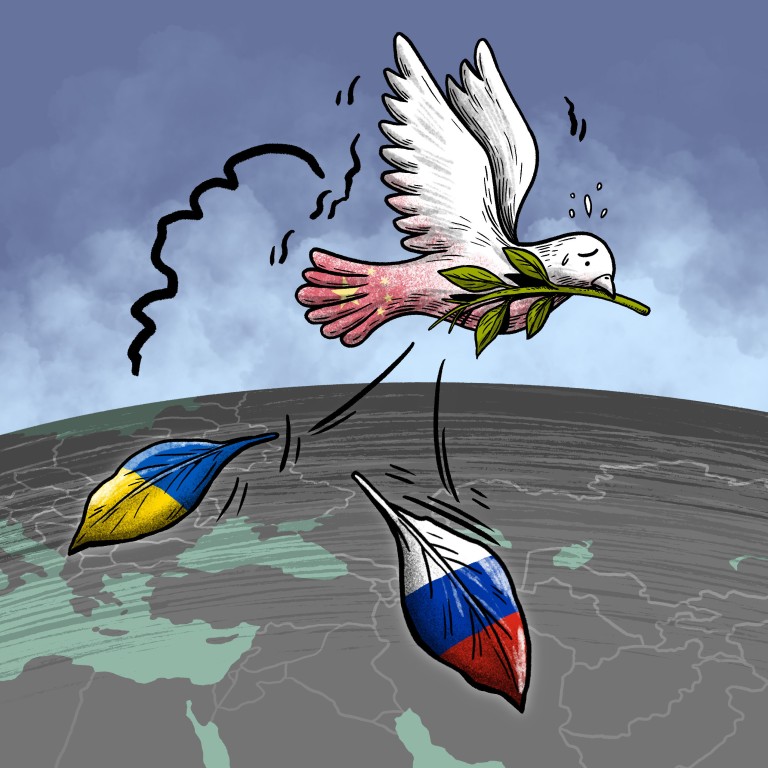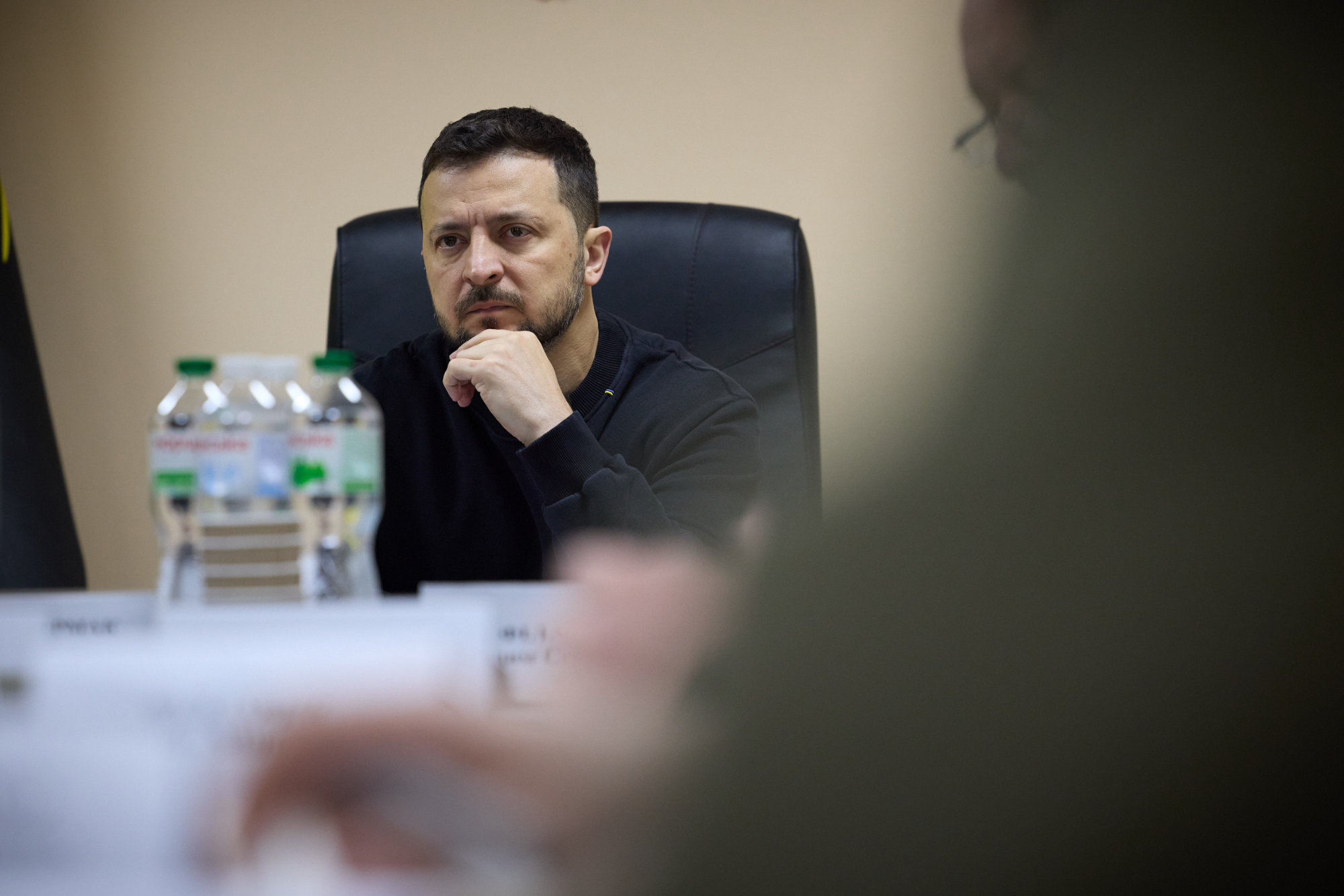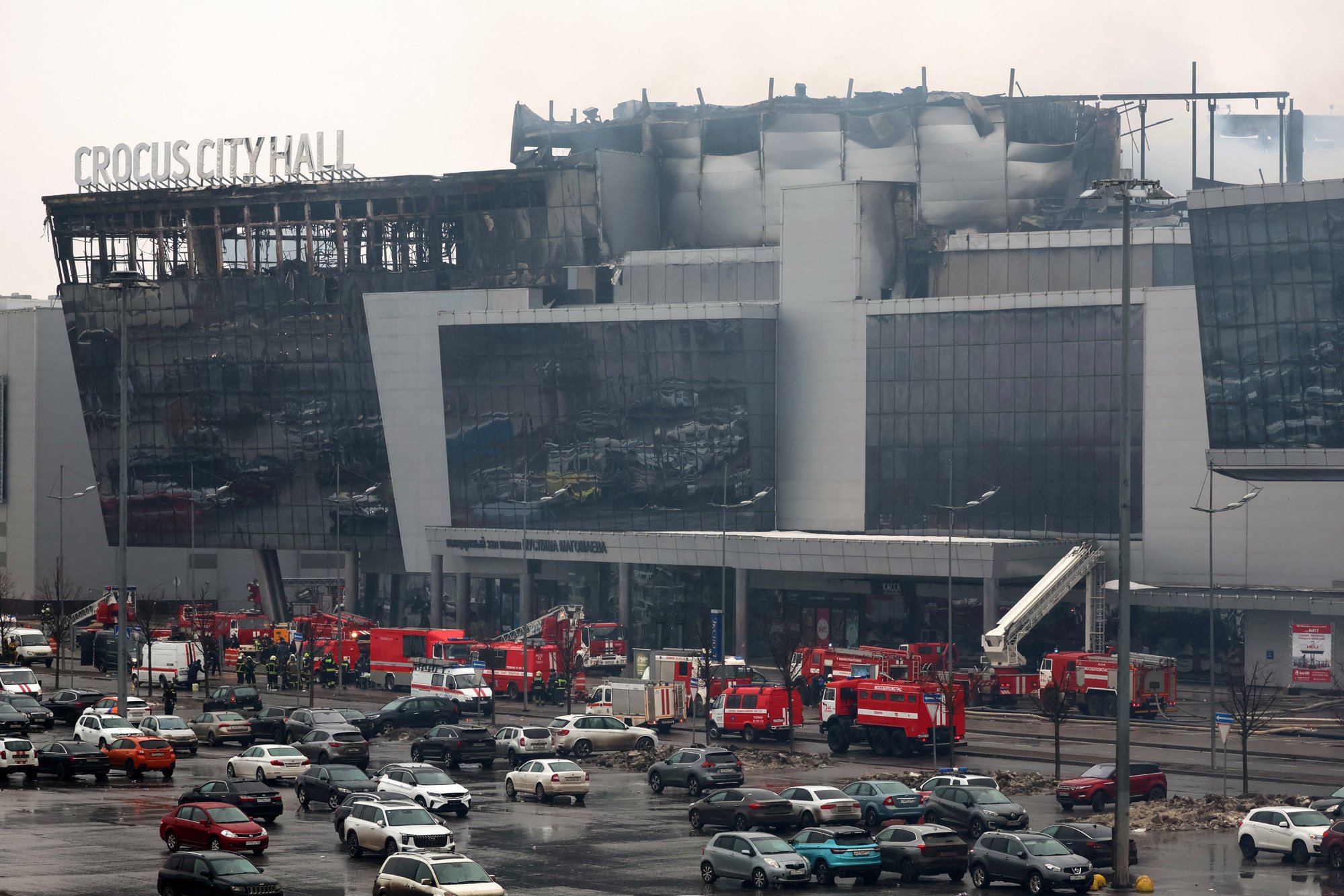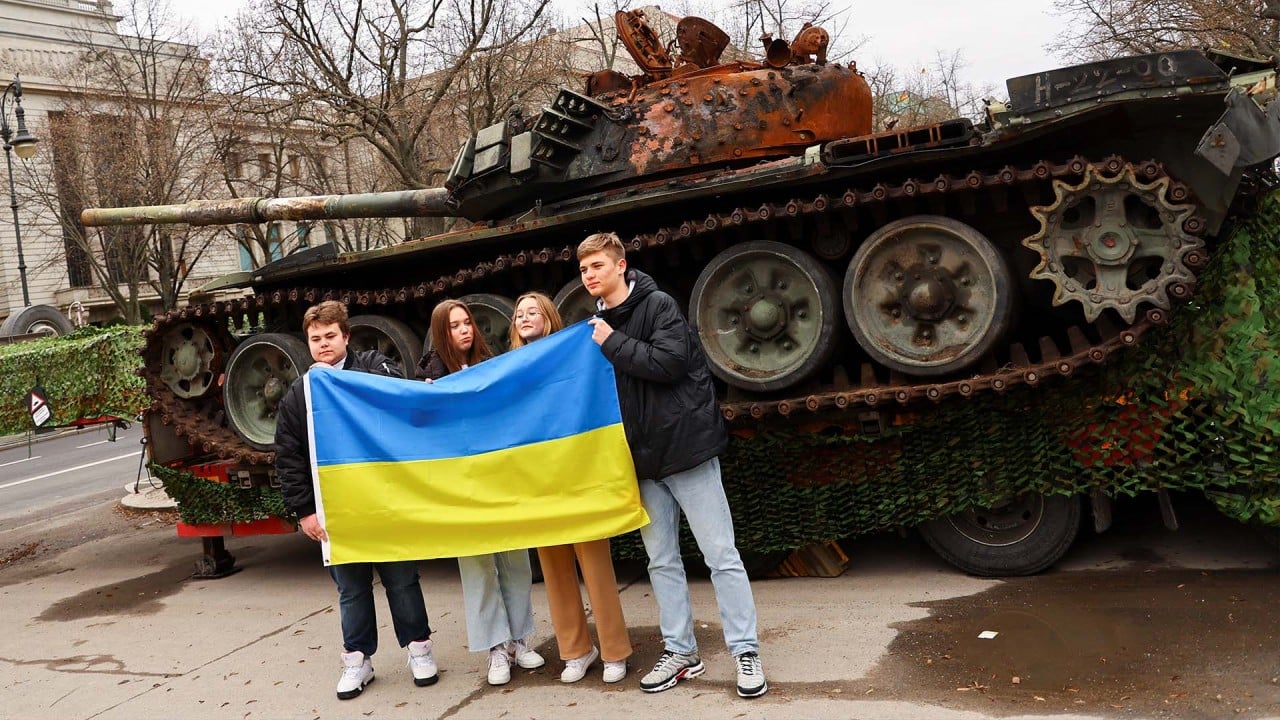
China sees ‘opportune moment’ as it pushes for direct Russia-Ukraine talks
- Special envoy Li Hui’s latest mission to Europe was met with scepticism, and could be seen as ‘signalling’ to the Global South
- Beijing has yet to confirm if it will attend the June peace summit in Switzerland but continues to lobby for Moscow to take part
Observers say Li’s trip achieved little, but that China – aiming to be a peace broker – has seen an opportunity to push for direct talks between Russia and Ukraine, with the Swiss summit the first step.
Peacemaker ambitions
Björn Alexander Düben, an international relations lecturer at Jilin University in northeast China, said Li was sent to Europe because Beijing saw an “opportune moment” to sway Kyiv and Brussels to make concessions amid “shaky” Western support and Ukraine’s recent setbacks on the battlefields.
Russia is expanding gains in eastern Ukraine after it took control of Avdiivka, in Donetsk Oblast, in February, and is now trying to seize the strategic city of Chasiv Yar. Ukraine, meanwhile, is running out of soldiers and ammunition amid stalled support from the US.
Düben said China’s efforts in Europe could also be seen as “signalling” to the Global South that it is a responsible power.
“The most cynical interpretation might be, China just wants to be seen as a peacemaker … when the US is perceived by more people around the world as not so much of a responsible actor in the context of what’s happening in Gaza,” he said.
China has sought to expand its influence in the Global South amid an intensifying rivalry with the United States.
It also wants to be a global peacemaker, brokering a rapprochement between Saudi Arabia and Iran last year and calling for an immediate ceasefire in Gaza. The US is meanwhile under pressure over the military funding and support it provides to Israel.
In Europe, special envoy Li would have stressed the urgency of negotiations on the Ukraine war given the potential return of Donald Trump to the White House, according to Victor Gao, vice-president of the Centre for China and Globalisation, a think tank in Beijing.
Ukraine’s Zelensky says Nato must choose ‘whether we indeed are allies’
Trump has reportedly said he will cut off US aid to Ukraine if he is re-elected in November and has threatened to end the war “in 24 hours” – unsettling many European Union countries including France and Germany, which have made more long-term security commitments to Ukraine.
“Now the West or Nato, led by the United States, does not have a unified and consistent position” on support for Ukraine, said Gao, also a chair professor at Soochow University in eastern China.
He said Li would have tried to leverage this during his talks in Europe.
Li was also on a mission to prevent further “spillover” of the conflict – especially after French President Emmanuel Macron floated the possibility of involving Nato troops, according to Wang Yiwei, a European affairs specialist at Renmin University in Beijing.
Germany and Nato rejected Macron’s idea, and US President Joe Biden said he would not involve American troops.
‘Large gap’
Back in Beijing, Li said the “large gap” between the involved parties had made mediation difficult, but they had agreed that the conflict would ultimately be resolved through peace talks.
Moscow has said it is open to talks with Kyiv, but Ukraine insists it will not start negotiations until Russian troops are withdrawn from its territory – a condition Moscow does not accept.
Li’s trip was met with scepticism in Europe, with some officials in Brussels saying he was just repeating “Moscow’s talking points”.
Beijing claims to be neutral in the conflict, but has drawn criticism for providing economic support to Moscow amid international sanctions. It has not condemned Russia’s invasion of Ukraine nor called on Moscow to withdraw its troops.
US lawmakers eye ‘full sanctions’ for Chinese military firms helping Russia
Grzegorz Stec, who heads the Brussels office of German think tank the Mercator Institute of China Studies, said Li’s trip achieved “scarce” results as the EU remains sceptical about Beijing’s intentions.
“Expectations in European capitals were low from the onset, as shown by the lower rank and number of officials that met with Li this time compared to his visit last year,” he said.
Li’s first peace mission last May included a meeting with Ukrainian President Volodymyr Zelensky that came soon after Zelensky’s phone call with Chinese leader Xi – their first and only talks since the conflict began in February 2022.
“The trip appears to have been … probing the EU’s resolve on supporting Kyiv and gauging space for a peace formula that would accommodate Russia’s demands,” Stec said.
Li’s trip was also about trying to improve relations and to push Brussels to lift restrictions on Chinese companies it accuses of helping Russia to circumvent EU sanctions, according to Düben from Jilin University.
He said while Beijing appeared to be renewing its mediation efforts by sending Li on a second peace mission after not doing “an awful lot” since his first, many in Europe were unconvinced since top leaders like Xi are not directly involved.
China’s plan
China’s push for immediate peace talks without calling for Russian troops to withdraw is also “highly unpopular” in Ukraine, according to Iliya Kusa, an international relations expert at the Ukrainian Institute for the Future in Kyiv.
“I would say that there are no high expectations from China’s role and that people tend to think that China will not do anything real to pressure Russia to help Ukraine,” he said.
Chinese analysts say the West has overestimated Beijing’s influence on Moscow, which will not withdraw its troops when it appears to have gained the upper hand in the war.
Russia now occupies nearly one-fifth of Ukraine’s territory, including Crimea and parts of the four provinces in the east.
Gao from the Beijing think tank said China’s peace proposal was “realistic”.
2 kids among 8 killed in Russian strikes, as Ukraine downs bomber
He also defended China’s neutrality in the conflict, saying it has never recognised Crimea and the four eastern Ukrainian states as parts of Russia, and has stressed that the territorial integrity and sovereignty of all countries are protected by the UN Charter.
“China’s logic is very pragmatic,” Gao said. “First to have a truce, then draw a line of actual control and cease hostility along that, to gain time to solve these [territorial] problems.”
Russia has justified its invasion of Ukraine as a response to the eastward expansion of Nato, which Kyiv wants to join, and President Vladimir Putin has said that “Russia will fight for its interests to the end”.
Wu Fei, an expert in Russian studies at Jinan University in southern China, said the prolonged conflict underscored Moscow’s aim to “reaffirm its status as a major geopolitical power”.
Putin has long had a vision to revive his country as a major power after the Soviet Union’s collapse. He reaffirmed this goal for Russia to be a “global power” through “reclaiming, consolidating and augmenting its sovereignty” in a speech in November.
Russia also sees China as a “viable peacemaker”, according to Vasily Kashin, a China expert at the Higher School of Economics in Moscow.
Kashin said that was because of its “huge influence on the countries of the Global South, many of which have already expressed support to the Chinese position in one form or another”.
He said Beijing could be a “key mediator” since, unlike Moscow, its communication channels with the West remain open despite strained ties.
Ukraine’s Zelensky thanks Germany’s Scholz for diplomacy in China
Swiss summit
But Li’s proposal to invite Russia to the peace summit in Switzerland received the cold shoulder in Europe, with EU officials describing the plan as a “non-starter”.
Bern agreed to host the summit at Zelensky’s request, as he seeks support for his 10-point peace plan. Previous talks have been held in Saudi Arabia and Malta without Russia’s participation. China attended the Riyadh talks and has said it would prefer both Russia and Ukraine to be involved.
Jean-Pierre Cabestan, a research fellow at the Paris-based Asia Centre think tank, said he doubted China would succeed with the proposal. “There is still a lot of work to do to convince both Ukraine and Russia to sit down and talk,” he said.
Moscow appears to be lukewarm on the Switzerland talks, with Foreign Minister Sergey Lavrov accusing Bern of not being neutral on the conflict because it imposed sanctions on Russia.
Kashin said Russia would “clearly prefer that any possible talks happen in a non-Western country”. “Russia will not participate in any discussions of the ‘Zelensky peace formula’ simply because Russia is currently slowly winning the war,” he said.

It is also unlikely that Ukraine would allow Russia to join the summit, according to Kusa. Zelensky has previously rejected the idea and said “representatives” at the summit would brief Moscow afterwards.
But Xi’s meeting with Scholz this week suggests Beijing may continue its efforts, with the German leader saying they had agreed to “coordinate intensively” on the Swiss and “future international peace conferences”.
Wang from Renmin University said Xi could discuss the summit with Putin when he visits China next month, while Scholz and other EU and Nato leaders may try to convince Ukraine to allow Moscow to take part. He said if that happened it could create the possibility of direct negotiations.
Bern has said the conference aims to create “a concrete road map for Russia’s participation in the peace process” and to build on Zelensky’s plan, which it said would not be “exclusively at the core”.
Yun Sun, director of the China programme at the Stimson Centre in Washington, said Beijing did not see a peace deal “originating from Russia’s unilateral concessions, which means that Ukraine will have to revise its peace plan and proposal to be more realistic”.
At G7, Blinken seeks European support for pressure on China over Ukraine
Alina Hrytsenko, senior consultant at the National Institute for Strategic Studies in Kyiv, said the logic of Ukraine’s peace formula was changing – to allow countries to support areas not exclusively seen as Ukrainian interests like nuclear safety and food security instead of endorsing the whole plan – so that it was more likely to gain support from China and other countries.
In Europe, Li reportedly told Brussels that Beijing would not take part in the conference if Moscow was not there, according to Politico.
But Hrytsenko expected China was likely to participate, though a lower-level official such as Li could attend.
Ukrainian envoy to China Pavlo Riabikin invited Beijing to join the summit in a meeting with Li on Thursday, a day after Scholz left China.
‘The West holds the key’
Tensions are again rising between Russia and Ukraine in the wake of last month’s Moscow concert hall attack, which killed at least 144 people.

The Islamic State Afghan branch Isis-K claimed responsibility for the attack, but Putin has accused Kyiv of playing a role and promised revenge. Kyiv has denied any involvement.
Observers agree that direct peace talks are unlikely at this stage.
However “some Western governments” now hope that “with China’s backing”, negotiations involving Russia could start “before the end of this year”, The Wall Street Journal reported this week, citing Western officials.
But according to Wang, “the trajectory of the war does not depend on China … the West holds the key”.
“China is not a party to the war, and we cannot determine victory or defeat on the battlefield, or [factors] such as ammunition, personnel or Trump.”

 - Kawala Xie.jpg?itok=NogZcyZ-&v=1661304068)
